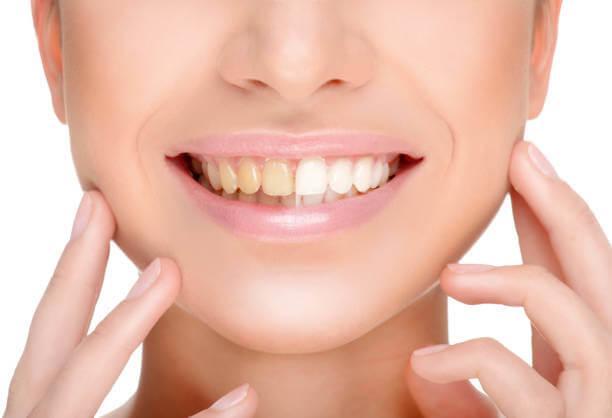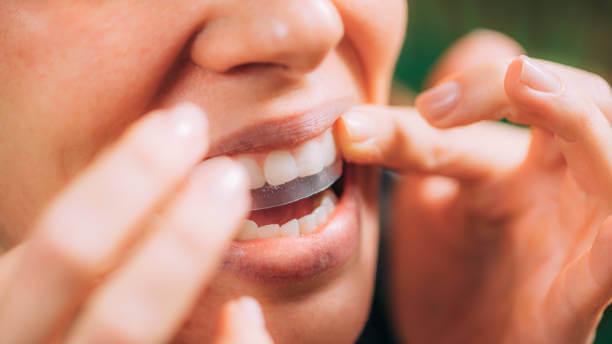
Teeth whitening has become a buzzword in the world of oral care, and one of the popular options for achieving a brighter smile is teeth whitening strips. But the big question remains: Do teeth whitening strips really work? Let’s dive into their effectiveness, exploring their benefits, proper usage, and potential drawbacks. By the end, you will understand whether these strips can truly help you achieve a dazzling smile that turns heads or if you need a trip to a cosmetic dentist to meet your white teeth expectations. The key player in teeth whitening strips is the whitening gel containing hydrogen peroxide or carbamide peroxide. They work by entering the outer layer of the teeth, known as enamel, and breaking apart the stains that have built up there over an extended period. As the gel interacts with the teeth, it lifts away the discoloration, revealing a brighter and more vibrant smile. One of the major benefits of these strips is their user-friendly design, which has made them a favorite for individuals who prefer to whiten their teeth at home. When it comes to brightening your smile, both teeth whitening strips and professional whitening treatments can be effective options. However, they differ in several aspects. Here's a comparison to help you understand their comparison: Criteria Teeth Whitening Strips Professional Whitening
Method Adhesive strips coated with whitening gel that is placed on teeth. Treatment is applied by dental professionals using high-concentration whitening agents.
Duration 20 to 30 minutes per session, usually for a duration of one to two weeks. Approximately 1 to 2 hours in a single session.
Effectiveness Can lighten teeth by several shades but results may vary. Typically provides more pronounced and uniform results.
Application Process Effective for moderate stains and discoloration. May require multiple applications for noticeable results. Usually more effective and faster, often providing significant whitening in one session.
Cost Less expensive, ranging from $20 to $50 per kit. More expensive, costing between $300 to $800 per session.
Maintenance May require repeated applications over time to maintain results. Long-lasting but might need occasional touch-ups.
Sensitivity Potential for increased tooth sensitivity, especially if used incorrectly. Lower risk as it's performed by professionals; however, some level of sensitivity can still occur. If you are aware of the differences that exist between these two approaches, you will be better equipped to make a well-informed choice regarding the teeth whitening treatment that will work best for you. The effectiveness of tooth whitening strips might vary greatly from one individual to the next, depending on a number of factors. Below is a list of the most significantly crucial ones everyone needs to consider: While teeth whitening strips can be an effective and convenient way to brighten your smile, they may not be suitable for everyone. If you are considering using them, it's a good idea to consult a dental professional for personalized advice. You can ask if teeth whitening strips are a fit for you at your next dental check-up and cleaning appointment. You're in luck if you're looking for alternatives to teeth whitening strips. There are several options available, such as: If you are seeking alternatives to teeth whitening strips, consider at-home whitening kits. These kits come equipped with personalized trays and a whitening gel that offers coverage for your teeth. For a gentler approach, whitening toothpaste can be a valuable choice. It serves as a solution that requires less effort and helps maintain the brightness of your teeth after using different products. Dentists can administer in-office whitening treatments, delivering noticeable and prompt results. When compared to solutions available in stores, the efficacy of this treatment is substantially better. In your quest for teeth-whitening alternatives, you're fortunate to have a range of choices at your disposal. Regardless of which one you choose, you now have the freedom to get the level of tooth whitening you prefer. Ditch the teeth whitening strips and experience the transformation you deserve at San Antonio Smiles. Our cutting-edge teeth whitening techniques are designed to give you real, noticeable results. No more waiting around for strips; contact us today and discover the smile you have always wanted! So, do teeth whitening strips work? The answer is a cautious yes! They can brighten your smile, but you need to be patient and consistent. Remember that your commitment and focus on following directions are invaluable for the success of achieving the desired outcome. Yes, teeth whitening strips are generally safe when used according to the instructions provided. However, if you encounter excessive sensitivity or irritation, it's advisable to seek advice from your dentist. Using whitening strips on your teeth regularly is necessary. They should be administered for at least two weeks, so don't skip days and keep going through the instructions as specified. Teeth whitening strips are most effective in addressing surface stains arising from food and beverages. For deeper stains, professional treatments may be more suitable. Always adhere to the manufacturer's guidelines when using whitening products, as leaving the strips on for too long can lead to tooth sensitivity, gum irritation, and tooth damage.The Science Behind Whitening Strips
Teeth Whitening Strips vs. Professional Whitening
Do Teeth Whitening Strips Work for Everyone?
Factors Influencing Effectiveness:
Who May Not Benefit:

Alternatives to Teeth Whitening Strips
1. At-Home Whitening Kits
2. Whitening Toothpaste
3. Professional Dental Treatments
Tired of Disappointing Whitening Strips? Try San Antonio Smiles!
Conclusion
FAQs
Are teeth whitening strips safe for use?
Is it acceptable to not use whitening strips for a day?
Do teeth whitening strips work on all types of stains?
What happens if you wear whitening strips for an extended period?
How Long Does Invisalign Treatment Take?
Should You Still See a Dentist If a Toothache Disappears?
The Holiday Season Is Here! Here’s How to Enjoy a Feast if You’re Wearing Braces